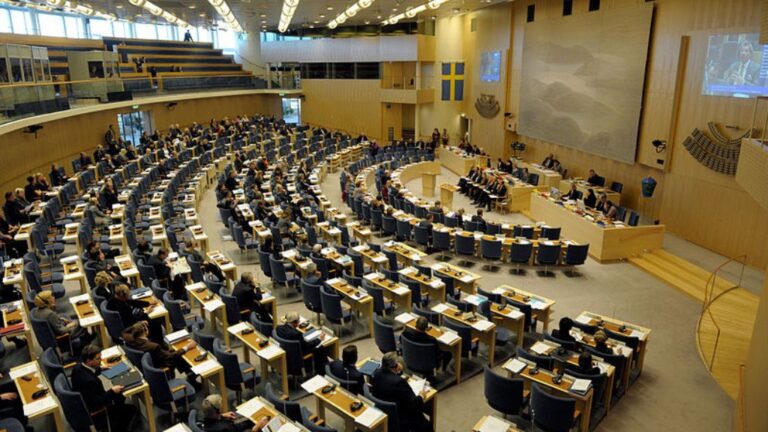On January 1, the controversial foreign espionage laws came into force in Sweden. Critics fear that the laws make it more difficult for journalists and whistleblowers to report on wrongdoing in international collaborations. But how can espionage laws restrict the media? And why were the laws voted through despite the criticism? The development magazine explains what you need to know about the law changes.
On 16 November 2022, the Riksdag voted through the new laws on foreign espionage – gross foreign espionage and disclosure of secret information in international cooperation. The changes to the law mean that it will be illegal to release and publish secret information about Sweden's international collaborations that could damage Sweden's relationship with other states and international organizations such as the UN and NATO. However, the laws provide exceptions for cases where the purpose of disseminating the information is "justifiable". According to the government's bill this can, for example, be when reporting on misconduct within international operations.
The crimes are also introduced as a constitutional amendment in the press and freedom of expression legislation after a majority in the Riksdag voted for the amendment on two occasions. The first vote was held on 6 April 2022 and the second was thus held in November. The changes to the law on foreign espionage entered into force as of January 1, 2023. Anyone convicted of foreign espionage can receive up to four years imprisonment.
The bills were already lifted in 2012
The legislative proposals on foreign espionage were already raised in 2012 in a governmental investigation on Sweden's protection against the intelligence activities of foreign powers. The investigation found that current espionage legislation only criminalized information that explicitly harmed Sweden's security. There was thus a lack of protection for secret information about international collaborations that Sweden participates in. According to the investigation, this can damage Sweden's security just as much indirectly and make collaborations with other countries more difficult. Because it was proposed that Sweden should introduce a new crime – foreign espionage.
The foreign espionage proposals were investigated further 2017 and eventually resulted in it proposition which the Riksdag has now voted through. Similar to other Swedish espionage legislation, the investigation considered that foreign espionage should also be included in the constitution. This is so that spies cannot leak information with reference to the constitutionally protected press- and freedom of expression.
The laws are criticized for restricting journalists and whistleblowers
However, the changes to the law and especially the constitutional amendment have received a lot of criticism, especially from the media industry whose work is protected by the press and freedom of expression legislation. Media representatives from, among others, SVT, the Union of Journalists and Reporters Without Borders are concerned that the laws may mean that authoritarian leaders can indirectly decide what becomes legal to publish in the Swedish media. This by being upset by information that journalists in democracies can normally publish to the extent that diplomatic relations are affected, which would mean that the journalist was guilty of harming Sweden relationship to these countries.
- Let's say that Sweden is still waiting for membership in NATO, but the arms embargo against Turkey has been lifted and a Swedish journalist is tipped off and publishes information that Swedish weapons have been used in assaults on Kurds in Syria. Upon disclosure becomes president Erdogan is so upset that he is closing the door on Swedish NATO membership. Shortly thereafter, both the Swedish journalist and his responsible publisher are charged with engaging in foreign espionage, several media representatives write in Today's news.
The Association of Journalists already wrote in its referral response to the investigation in 2017 that "damage relationship" was vaguely worded compared to other constitutionally protected spy legislation that more clearly states what information may not be published.
The foreign espionage laws have also been criticized for making the situation more difficult for whistleblower. This by Unauthorized persons may not disclose secret information that can be traced to foreign espionage. The media representatives is therefore concerned about how the changes to the law would have affected Anders Kompas's whistle-blowing about how UN soldiers sexually abused children in the Central African Republic under 2014 and 2015.
- Did he then risk damaging Sweden's relations with the UN so seriously that he could be prosecuted for foreign espionage?, they wonder.
Anders Kompass himself is also critical of the changes in the law.
- I get very worried about what is about to happen, he says Aftonbladet.
Politicians from several parliamentary parties has responded to the criticism with justifiable cases being exempted from the laws – precisely to protect journalists and whistleblowers who report on wrongdoing. Lawyers and media organizations believes, however, that it is unclear what justifiable means and that it therefore risks leading to self-censorship.


